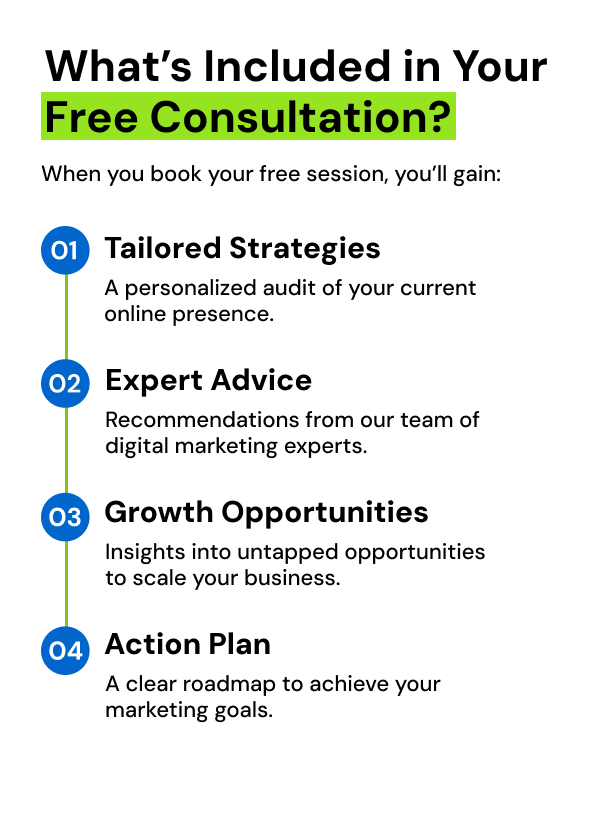Introduction
AI Chatbots or virtual assistants are specialized programs designed to mimic human customer support. They are trained by AI and machine learning algorithms on customer and product bases to resolve customer queries in natural language processing (NLP).
Several sectors, including retail, healthcare, insurance, government agencies, defense, and automotive, utilize AI chatbots that form a valuable and intrinsic part of customer service and support. You can find them as chat boxes on websites and are available at a click.
Since AI chatbots are connected to information, product, and service repositories, they rapidly access information to answer customer queries. Market Research Future highlights that by 2034, the AI chatbot market is expected to reach nearly $34 billion USD. This blog examines the rise of AI chatbots and their impact on transforming customer support and sales.
What are Chatbots?
AI chatbots are new avatars of chat services, replacing human operators. An AI program replaces human operators with a human-like name and avatar. Figure 1 illustrates how chatbots operate.

Users generate queries in natural or everyday language, and the AI chat uses NLP to understand the meaning and intent. The AI platform features a knowledge base and data storage repositories that store frequently asked questions and their corresponding answers. The system searches the databases and presents the appropriate answer. With constant learning and feedback, these responses are refined.
Several types of chatbots have been developed. Some of the popular kinds are rule-based, machine learning-based, retrieval-based, generative, task-oriented, and conversational. Organizations choose the appropriate chatbot to meet their needs.
Functions of AI Chatbots
AI chatbots are programmed to orchestrate processes, technology, brand promotion, people, and business objectives. They are designed for specific functions such as answering customer questions, running searches based on user inputs, analyzing data, and understanding the intent of a query.
AI chatbots understand the emotion and context of conversations and make recommendations in multiple languages. They can track orders, provide updates, assist with configuration and troubleshooting, and serve as a human support.
How AI Chatbots transform customer support and sales?
AI chatbots are integrated with customer relationship management applications. This section presents 15 ways in which AI chatbots transform customer support and sales.
1. Reduced costs
The use of well-trained AI chatbots can reduce the number of human support staff. AI chatbots can handle multitasking, allowing them to respond to multiple requests from users simultaneously.
Human support would place customers in a waiting queue until a representative is available. In addition, AI chatbots reduce the need for office space, commute, training, and other expenses that a firm would spend on human support. These features reduce costs.
2. 24×7 availability
AI chatbots are integrated with the website or app and are always available. Customers use mobile apps or the site to open the chat box and ask questions. There is no need for human support to manage the bot. As a result, customer support is available 24/7, including nights and holidays.
Sales staff and the management are assured that support is always available, in multiple languages. This assurance is essential, as online customers can make purchases at any time when human staff are not present. Therefore, the 24/7 availability transforms customer support.
3. Personalized service
Customers differ in their requirements and preferences. In such cases, it is important to know what items interest each customer. AI chatbots track browsing behavior, including items customers viewed, pages they visited, and problems they encountered.
As a result, AI chatbots recommend specific products or services based on customers’ previous patterns. The chatbots can then send alerts when items customers have expressed interest in become available or are discounted. Personalized service is available in this manner.
4. Faster and accurate responses
AI chatbots utilize advanced architecture and a knowledge base that enable the rapid processing of unstructured user queries. Using NLP, they quickly process text classification, dialogue management, machine learning, and backend services.

Depending on the query complexity and internet speed, chatbots typically give instantaneous responses. If queries are unresolved, they are escalated to a human supervisor. They also analyze responses to evaluate response times, error rate, and other metrics to improve.
6. Multiple channel support
Many firms utilize multiple channels for communication, and AI chatbots are integrated across these various channels. They deliver consistent and standardized performance across Meta, web, Instagram, and all other platforms and channels.
Customers can access the offerings from multiple channels and obtain the same responses. This feature transforms customer support and sales by deriving an appropriate response from the knowledge base. The quality and accuracy of human reactions can vary.
7. Constant learning
AI chatbots are created with machine learning algorithms. The feature allows the chatbot to learn, remember, and refine responses continuously. Expensive training is avoided for human support staff, and errors are eliminated.
With constant machine learning, customer support, and sales can quickly update new terms and features. Alerts in new products are automatically pushed to customers through the CRM application. By avoiding manual training and updates, customer support is transformed.
8. Increased customer engagement
According to recent statistics, 23% of customer care organizations currently utilize AI chatbots to enhance customer support. AI chatbots give prompt and personalized responses. They are available 24/7 in multiple languages. Customers tend to be more proactive when their responses are addressed correctly, and they get the requested information.
When customer experience is satisfactory, it becomes possible to engage customers and increase their interest in additional products. They tend to visit frequently, spend more time browsing, and make a positive purchase decision. These progressions transform customer support.
9. Maintain privacy and security
Customer contact details, purchase transactions, financial information, and credit card numbers are private. These cannot be compromised or misused. AI chatbots only consider the immediate information necessary to answer a query and do not access confidential information.
As a result, privacy and security of customer information are not compromised. Since this information is shared on a need-to-know basis, AI chatbots maintain a high level of security. Customer confidence in conducting transactions increases and enhances customer support.
10. Handling complex queries
AI chatbots can handle multi-thread queries from customers. This term means that they can answer a series of nested queries. They can also handle several customers who query at the same time, allowing one chatbot to manage them.
Human support or traditional chat addresses only single queries from one person. These features increase the offerings and capabilities of AI chatbots. Customer support has been transformed since the number of customers managed has increased, reducing wait times and fostering positive behavior.
11. Automated workflows and CRM
AI chatbots act as an interface between CRM systems and the customers. The CRM system works best when it is automated with minimal staff interference. All processes, such as learning and updating the knowledge base, are automated.
An automated AI chatbot can autonomously resolve queries and use the discussions to refine the process. Customer support staff benefit from automated workflows, as they are freed up to take on other creative tasks, analyze performance, and implement new strategies.
12. Easy scaling
When an organization expands its offerings or enters new countries, AI bots can scale efficiently. The availability of cloud infrastructure, efficient and high-speed data pipelines, allows support to increase their services.
AI chatbots can clone their services to assume new avatars and provide services in multiple languages. So, in the Middle East, the chatbot could be an Arab, and so on. Support can localize its offerings to suit local tastes and requirements.
13. Reasonable cost
These chatbots are expensive and require a high level of expertise. However, the resulting savings in terms of improved customer support and reduced support staff costs quickly pay back the initial investment.
The results justify these one-time costs. Specialist firms utilize the latest tools with NLP to provide comprehensive functionality. A fully functional AI chatbot requires training and development. These are further refined and improved. One-time costs are justified by the long-term benefits they provide.
14. Multiple language support
AI chatbots are coded to understand multiple major languages. This feature is useful since customers come from different nationalities and not all may be fluent in English. By including other major languages such as Arabic, Hindi, and German, a wider range of customers is served.
Customer support finds that this aspect helps to transform their offerings. It would be difficult and expensive to recruit staff who are native speakers of other languages. Consistent and standard responses of offerings, terms, and order tracking are possible.
15. Integration with sales and marketing
AI chatbots are an extension of customer-related services and support. Organizations analyze data from customer conversations to identify issues. They can then use the findings to improve their service levels.
Other departments and functions use the data to resolve urgent issues and gaps in service offerings. While a firm faces several secondary and minor problems, the main issues that receive the most queries are resolved first.
Conclusion
The article examined 15 ways in which AI Chatbots transform customer support and sales. With the rise in competition and crowded markets, AI chatbots provide a streamlined and focused approach to serving customers, thereby enhancing the quality and level of customer service.
AI chatbots, as the name suggests, are built using artificial intelligence, reducing the costs incurred in hiring human support. Since they are connected to a knowledge base, they can rapidly access the accumulated organizational data to answer a range of queries.
They are available 24/7, never take a break, or call in sick. They access customer browsing history and purchases, and provide personalized service. AI chatbots offer accurate and prompt responses while adhering to privacy standards.







